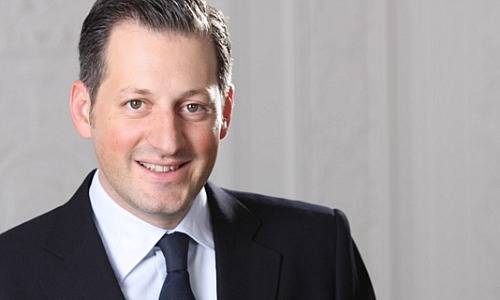What Boris Collardi and Florentino Pérez Have in Common
Boris Collardi is adding one star banker after another to his lineup. With the consequence that he loses some of his own best. Arguably, the personnel policy of the Julius Baer CEO is a tad too volatile.
Burkhard Varnholt last said that the Swiss Market Index would reach 20,000 points by 2020. He doesn't know of course, because even the investment boss at Julius Baer isn't a clairvoyant. Otherwise, he would have known that within a year he wouldn't be working for the private bank anymore.
The investment expert will join Credit Suisse (CS), and not for the first time. Varnholt will be deputy investment boss at the International Wealth Management division.
The change of heart didn't come as much of a surprise. Boris Collardi, the CEO of Julius Baer, in January named Yves Bonzon co-investment boss at the bank, much to the surprise of everybody. Bonzon in fact was about to start a new job at BSI, but the turbulences at the Ticino-based bank made him change his mind.
The Real Madrid of Private Banks
Collardi created the Investment Management unit for Bonzon, but in reality it was clear for all to see that Varnholt and Bonzon wouldn't both last – with Varnholt being the one to lose out.
Now, Yves Robert-Charrue, responsible at Julius Baer for the business with independent asset managers, has to step in and manage ad interim the Investment Solutions Group, adding to his already heavily charged schedule at a time of turbulence. And Julius Baer is looking for a replacement.
Constant Change as a Defining Principle
Varnholt is the last in a row of prominent departures at Julius Baer. Not long ago, Bernard Kobler, head of the business in central Switzerland, left the Zurich-based bank.
A surprise? Not really. Collardi had taken a gamble when he appointed Kobler in June 2015. Kobler had to leave as CEO of Luzerner Kantonalbank because of an extra-marital affair.
Collardi didn't care about Kobler's reputation and gave him a second chance, hoping that the banker with a formidable network among rich clients in central Switzerland would be able to pay him back.
It was a courageous decision, but the situation wasn't easy for Kobler. He wasn't suited to the work of a client adviser and unsurprisingly, his influence remained limited, insiders say.
Asian Changes
Collardi's personnel decision also created some unintentional consequences in Asia, the other home market of Julius Baer. Thomas «Tom» Meier, the head of Asia, had let it be known that he wanted to return to Switzerland after ten successful years of developing the bank's presence in Singapore.
Collardi was quick to present his replacement – in August he installed Jimmy Lee as new CEO of the Asian business. Lee used to work for CS in Singapore.
Meier was given the nondescript position of non-executive vice chairman.
Top Talents for Julius Baer in Asia
But that wasn't the end of the story. Lee had a string of trusted companions join him on the executive board. CS-banker Torsten Linke became new head private banking South East Asia. David Lim, who had contributed significantly to the development of operations in the region was made a vice chairman.
David Shick in April joined also from CS and replaced Kaven Leung as head of private banking Greater China.
The changes came as little surprise, because a new CEO tends to replace his top managers. Julius Baer has been able to attract a top executive for its Asian business. But lost several quality managers as a consequence. And top talents in Asia are rare.
Prominent appointments and departures: Collardi's personnel policy seems a little volatile. The same could be said about his management style, as finews.asia has indicated earlier. His war for talents means that he will do his utmost to get the best managers, even if an existing executive has to either move or share power. Collardi shares this policy with the president of Real Madrid, Florentino Pérez.
New brooms for a dynamic private bank seems to be the strategy of Collardi.





















